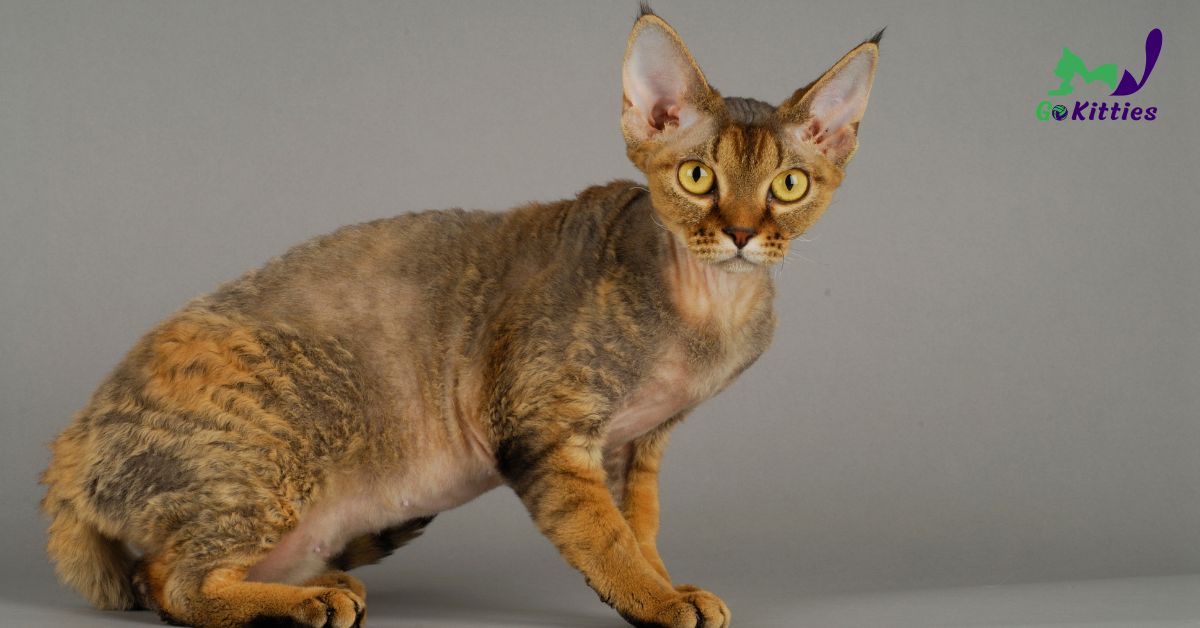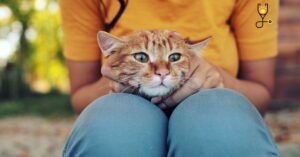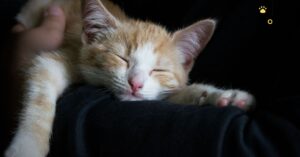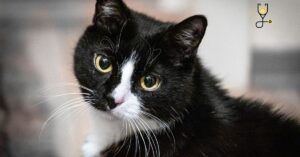Do you love cats, but are looking for a breed that is a little bit different? If so, the Devon Rex cat may be perfect for you! With their big ears, elfin faces, and quirky personalities, Devon Rex cats are certainly one of a kind. Keep reading to learn more about this special breed – including care tips and information on health issues.
History Of Devon Rex Cat Breed
- The Devon Rex cat is a relatively new breed, having first appeared in England in the 1960s. The story goes that a stray kitten with unusual physical characteristics was found near the village of Buckfastleigh in Devon. This kitten, who was named Karlee, became the founding member of the Devon Rex breed.
- Karlee’s physical appearance was quite different from that of other cats, with large ears, a short coat, and an unusual wrinkled appearance. These physical traits were later determined to be the result of a natural mutation.
- The Devon Rex breed quickly gained popularity in Europe and the United States. In the 1970s, two Devon Rexes were imported to the United States, where they played an important role in establishing the breed here.
- Today, Devon Rexes are still relatively rare compared to other cat breeds. However, their unique physical appearance and loving personalities continue to make them popular pets.

Breed Overview
Height: 10-12 inches
Weight: 8-10 pounds
Coat: Wavy, short, and soft color, Any color or pattern
Life Expectancy: 12-14 years
Eye Color: Blue, green, amber, or copper
Breed Characteristics
- Big ears: The most prominent feature of the Devon Rex is its large, bat-like ears.
- Eyes: Devon Rex cats also have very expressive eyes, which are often described as “human-like.”
- Short coat: Another distinctive feature of this breed is its short, wavy coat.
- The texture of the Devon Rex coat has been likened to that of a lamb or chinchilla.

How To Take Care Of Devon Rex Cat Breed
The Devon Rex is a very special breed of cat, and as such, they require some special care. Here are a few tips on how to take care of your Devon Rex:
1. Grooming: Devon Rex cats require very little grooming. However, you should still brush them occasionally to remove any loose hair.
2. Diet: Devon Rex cats are relatively active, so they need a diet that is high in protein and fat. You should also make sure that they have access to fresh water at all times.
3. Exercise: Devon Rex cats love to play and run around, so it is important to provide them with plenty of toys and space to do so. It is also important to give them some daily exercise, such as playing with them or taking them for walks.
4. Health: Devon Rex cats are generally healthy, but like all animals, they can sometimes get sick. If you notice any changes in your cat’s health, it is important to take them to the vet right away.

By following these tips, you can be sure that your Devon Rex cat will be happy and healthy!
Feeding Devon Rex Cat Breed
When it comes to feeding, Devon Rexes are not particularly picky eaters. They will typically eat whatever type of cat food you provide. However, it is important to choose high-quality cat food that is appropriate for their life stage. Kittens, for example, need a kitten formula that is high in calories and nutrients.
Devon Rexes typically eat two or three small meals per day. If you are feeding dry food, be sure to provide fresh water at all times.
Health Issues Devon Rex Cat Breed
Overall, Devon Rexes are a healthy and hardy breed. However, like all cats, they can be susceptible to certain health problems. These include:
• Cardiac abnormalities: Devon Rexes may be at increased risk for certain heart defects. Be sure to consult with your veterinarian about regular checkups and screenings.
• Kidney disease: Some Devon Rexes may develop kidney disease later in life. Again, regular checkups with your vet are important to catch this problem early.
• Respiratory problems: Devon Rexes may be more prone to respiratory infections and other respiratory problems. This is due in part to their short noses.
• Gestation diabetes: Pregnant Devon Rexes may be at risk for developing diabetes during pregnancy. This condition can be managed with proper diet and care.

Devon Rex cats make wonderful pets for families of all types. With their big ears, elfin faces, and loving personalities, they are sure to bring joy to your home.
So, what are you waiting for? Find a Devon Rex kitten today!
Where To Adopt Devon Rex Cat Breed?
If you are interested in adopting a Devon Rex, there are a few things you should know. First, Devon Rexes are still relatively rare, so they may be difficult to find. Second, because of their unique physical appearance, Devon Rexes often require special care.
Therefore, it is important to do your research before adopting a Devon Rex. You should talk to your veterinarian and other Devon Rex owners to get a better idea of what this breed is like.
Conclusion
The Devon Rex is a unique and special breed of cat. With their big ears, expressive eyes, and short, wavy coats, they are sure to stand out in a crowd. But it’s not just their looks that make them special. Devon Rexes are also known for their loving and affectionate personality. If you are looking for a new feline friend, the Devon Rex is a perfect choice!
Frequently Asked Questions
1. How much does a Devon Rex cost?
Devon Rexes typically cost between $600 and $1,200. However, prices may vary depending on factors such as breeder reputation, location, and coat color.
2. How big do Devon Rexes get?
The average Devon Rex weighs between 6 and 12 pounds.
3. How do I groom my Devon Rex?
Devon Rex cats require very little grooming. However, you should still brush them occasionally to remove any loose hair.
4. What type of food should I feed my Devon Rex?
Devon Rex cats are relatively active, so they need a diet that is high in protein and fat. You should also make sure that they have access to fresh water at all times.
5. How much exercise does my Devon Rex need?
Devon Rex cats love to play and run around, so it is important to provide them with plenty of toys and space to do so. It is also important to give them some daily exercise, such as playing with them or taking them for walks.







